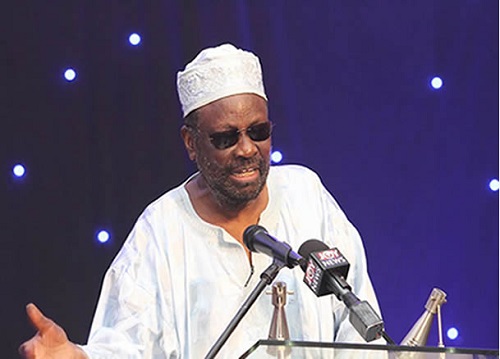When I joined the news section of the Ghana Broadcasting System in 1957, the standards in the newsroom were extremely high.
Our Head of News was a guy called Ian Wilson, who had been a BBC newsman for over 20 years before being seconded to the Gold Coast Broadcasting System. Beneath him was a chap who has graduated in journalism in America. These guys had a good idea what “news” was, and they made sure that we never made mistakes of fact and/or grammar in the stories we broadcast to the whole country.
But the main pillar of strength in the newsroom was a lanky, bearded chap called Shang Simpson. He’d been trained at the Daily Graphic and was conversant with proof-reading and other techniques that the paper had imported from its owners, the Daily Mirror Group of London. It was sacrilege for a typographical error to appear in the paper and so, apart from specialised proof-readers who read the copy straight from the type-setters, senior editorial staff like the Chief Sub-Editor all took a final look at the stories before they were printed. This, in spite of the fact that there was a dedicated ‘Stone Editor’ who was always at the ‘Stone’ (printing room), whose job was to make sure that editorial ‘matter’ was correctly printed.
Because of this background, Shang Simpson drilled it into us never to allow a story to reach the news readers with a single mistake in it. Of course, typists made mistakes, in spite of their much-vaunted qualifications from commercial colleges. The difference between typists and typists was sometimes unbelievable. We had a guy called Adiba whom everyone wanted to use.
But the best of all, a chap called ‘KK’, “was reserved” for the Head of News as his “Private Secretary”. We all resented this, because all he really did for the Head of News was to type beautiful notes to those who invited that guy for lunch, dinner or cocktail parties. Occasionally, when we were “hot” in the newsroom, because news of importance had broken out late, KK came to the rescue and could type stories straight from dictation without missing a thing.
Sometimes, when I read articles from the newspapers [sadly including some of those from whom I write!], I cannot believe that they have allowed certain typos to go into print uncorrected. Simple typos, like a mixture of letters and figures in a word; or simple grammatical errors that creep into one’s writing when tight deadlines demand extraordinary speed, appear not to have been checked before going to the printers. It is true that there isn’t that much money to throw around newsrooms these days, but surely, expert proof-reading must be one of the sine-qua-nons of every journalistic operation?
How I miss the guys who used to wield “indelible pencils” at the printer’s, poring over one’s copy word by word and line by line, miraculously detecting mistakes one had missed, despite all one’s efforts to be one’s own proof-reader! So relatively easy have things become for the modern word-processed production system that it appears good proof-readers have been jettisoned into the unemployment killing fields! I plead that they should be brought back.
One of the funniest things about journalism in those days was that one’s personal life was closely scrutinised to ensure that one did not, for instance, get into debt, as that could expose one to blackmail or undue influences. I remember the shock I got one day when on arriving at the office at GBC, I was handed a “Writ of Summons” that had been served on me through the GBC Administrative Department.
My landlord, who was resentful that his wife did not hand to him an agreed sum of money that she charged me for “house-keeping”, had issued the writ against me, despite the fact that we had agreed I would leave the house at the end of the month! Apart from “unpaid rent”, he demanded a “refund of boarding expenses!”
He knew I would have to settle his demands rather than have the writ of summons remain on my ‘Personal File!’
And indeed, so shocked was I by the man’s unscrupulous attitude – especially the blatant untruths in the writ – that I allowed a friendly editor of mine, Mr Robert Tabi, to go and pay the man as much as I could find, and moved from the house immediately.
At Broadcasting House, even one’s private life was scrutinised to ensure that one did not conduct “unapproved” relations with the opposite sex. One news reader was sacked unceremoniously when his name appeared in the newspapers as the “co-respondent” in a divorce case that went to court. Why should a person’s romantic life be relevant to his work?
But you see that I still remember that awful story? Those methods were used to keep us in line! If one had a propensity to engage in adultery, one would remember that it could have a negative effect on one’s journalistic career.
Yes – managements of journalistic enterprises do owe society a duty to ensure that their employees behave correctly as much as possible. But, of course, managements must also employ staff in numbers and of a quality that can ensure that typos and mistakes of fact are avoided like the plague in their establishments.
By Cameron Duodu

